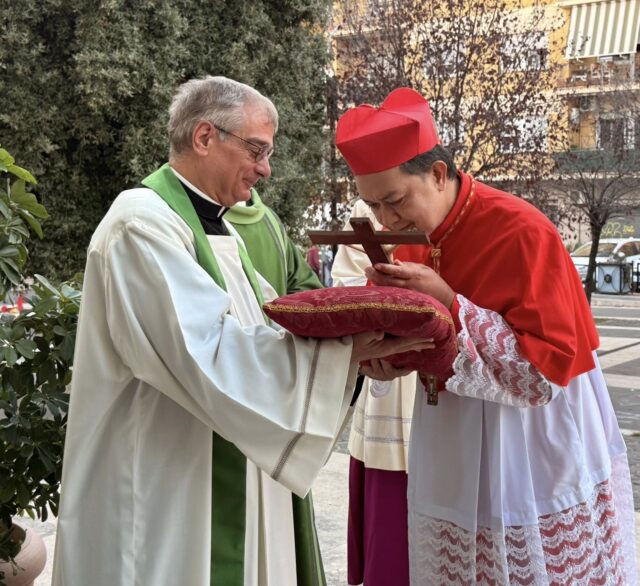FIRST OF all, I ask you to say a prayer for my country, the Philippines.
I left my country with a heavy heart. In these days, the people’s anger over government corruption is growing. And when anger grows faster than justice, it can easily explode into violence — as has recently happened in Nepal and Indonesia.
So, I ask you: please pray for us, that we may find peace in truth and justice, not in blood.
I can somehow relate to the image in our first reading — of Moses, praying from a distance while his people are struggling in battle. That’s how I feel right now: far away, with arms outstretched in prayer for our kababayans at home who—in addition to nonstop natural calamities of typhoons, floods, earthquakes, and volcanic eruptions, are also dealing with the even worse calamity of corruption and malversation of public funds worth trillions, that has severely eroded the nation’s trust in government.
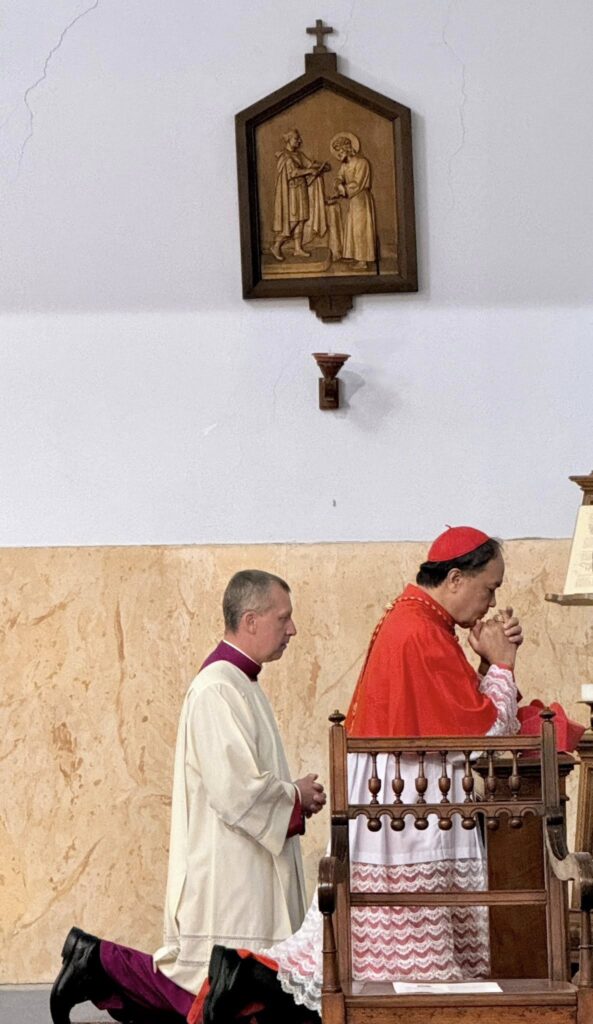
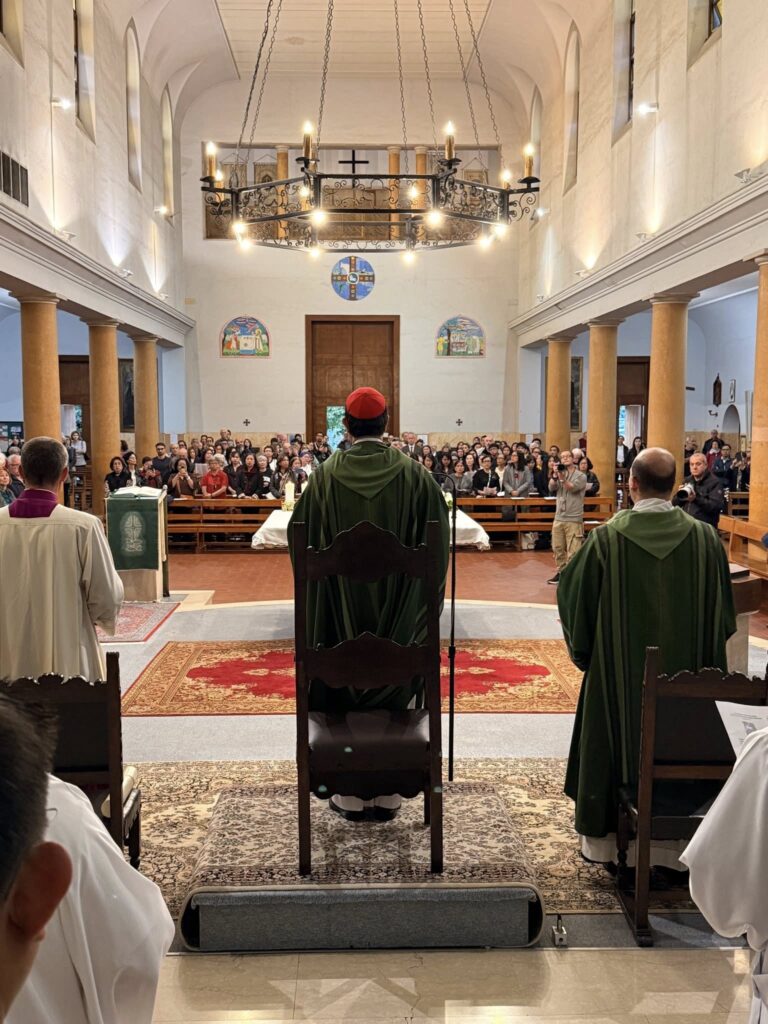
You know, when I was newly ordained 43 years ago, I used to extend my arms widely in orans position for the presidential prayers. I was like a bird preparing to soar up in the air, full of youthful energy and idealism. But as the years went by, it’s like my arms grew heavier and heavier, and the arms’ stretch in prayer getting narrower and narrower. I am therefore wondering why some young priests, whom I expect to still be in honeymoon stage, have already narrowed down their orans position like this—demonstrate gesture—so soon!
There come such times in your ministry when, even if you still want to pray and still want to believe, you find your arms like those of Moses, drooping from weariness.
And so I love this detail in the first reading — that Moses did not pray alone. When his arms grew weary, Aaron and Hur stood beside him, one on the right, one on the left, to hold his hands steady until sunset.
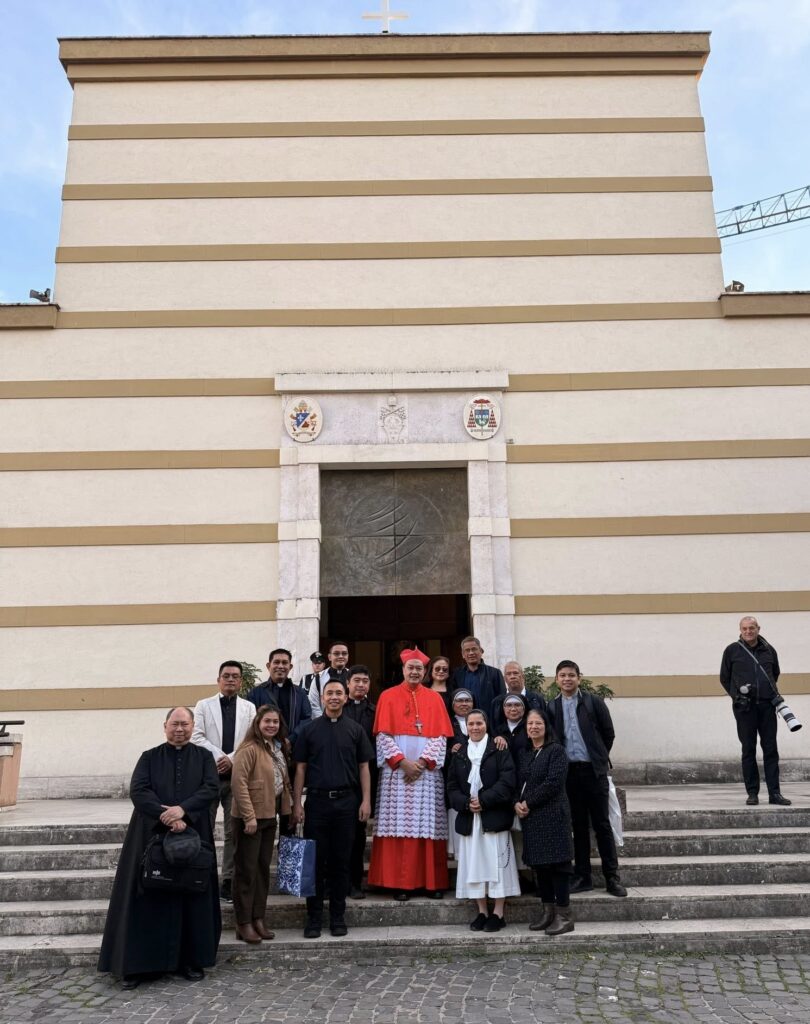
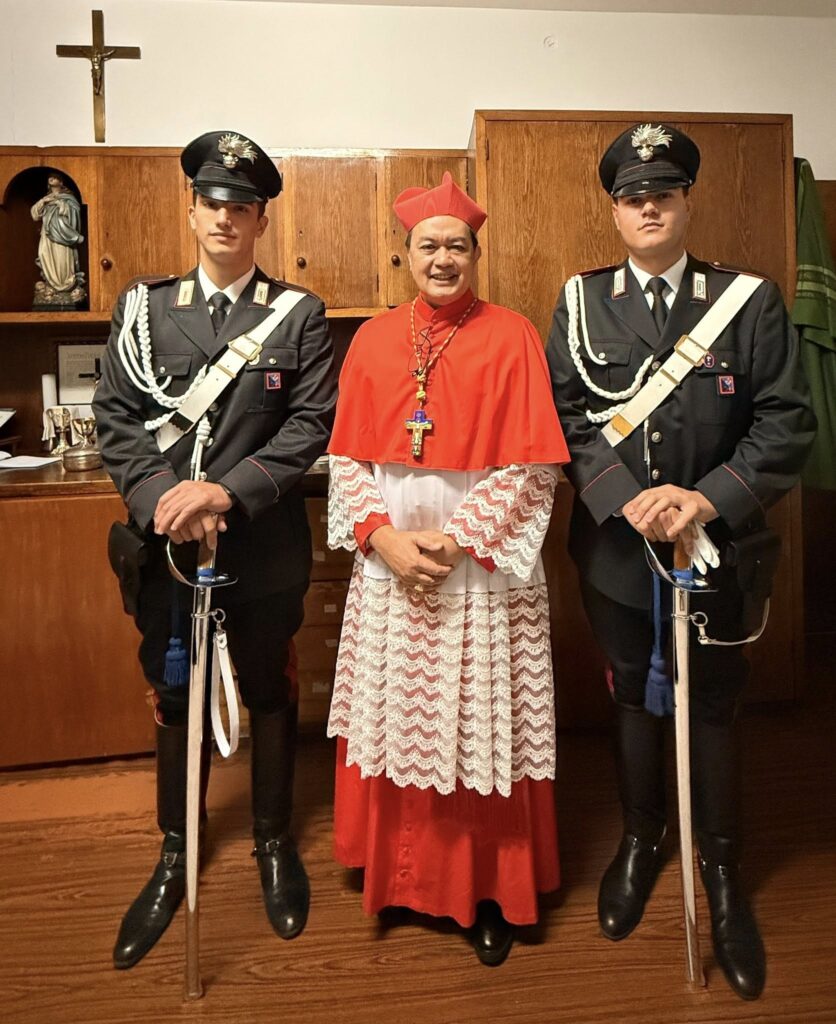
That’s our first lesson about perseverance: you don’t persevere alone.
Faith is not a solo performance; it’s a choir. We need others to keep us standing when our knees begin to tremble and our hands grow weak. Even priests, bishops, and cardinals need their Aarons and Hurs — people who hold them up when the burden of ministry becomes too heavy.
And if you think about it, even Jesus Himself had His own “Aaron and Hur” in the Garden of Gethsemane — Peter, James, and John. They fell asleep, all right, but they were there with him nevertheless. And even when they failed Him, He still loved them and believed in them.
So, if you ever feel tired in prayer or in service, remember: you are not alone. Perseverance is sustained by community. Don’t ever behave like “lone rangers” whether in your life or in your ministry—if you want to survive.
Let me now draw a second lesson from our second reading, from Saint Paul’s letter to Timothy. Paul says, “Be persistent, whether it is convenient or inconvenient.”
What he means is: Don’t give up just because the ministry begins to weigh on you. The strength to persevere doesn’t come from sheer stubbornness or will power, but from the power of God’s Word that lives in us.
When you let the Word take root in your heart, it becomes your strength in times of dryness, your compass when you lose direction, your light when everything feels dark, your fire when you’re feeling cold.
I remember a time when I almost lost courage in my ministry, especially during those times when I felt like a voice in the wilderness. I felt like a miserable failure when many of our own Catholic faithful did not agree with our moral stand, such as against the killings during the bloody drug war of the previous administration. Some of them were even supposed to be pro-life advocates. There were those times when witnessing to the Gospel became a very unpopular option; when in the midst of threats and persecution many of our own people responded with apathy and indifference. During those times it was the Word of God that kept me going.
You know, I have two daily habits: my walk with Mama Mary after dinner, and my coffee with Jesus early, in the morning. I am used to waking up early, making a cup of coffee and drinking it in my chapel while praying the lauds, reflecting on the readings for the day and preparing for my homily. I call it my intimate “Coffee with Jesus Moment.” It has kept me going. That’s when i hear echoes from the Scriptures that speak straight to my heart. Like the assuring words of Paul to Timothy in our second reading: “If we are unfaithful, He remains faithful, for He cannot deny Himself.” (2 Tim 2:13).
That verse has actually been one of my anchors. And maybe some of you have your own favorite verses that keep you going— a line of Scripture that carries you through life. I suggest that you hold on to it. That’s how perseverance grows roots.
And now let’s draw a third lesson, this time from the Gospel. Jesus tells us the parable of the persistent widow — a woman who didn’t stop knocking on the door of an unjust judge until she finally got justice. I love her guts! If she were Filipina or Italian, she would be the kind of nonna who would not take a “no” for an answer.
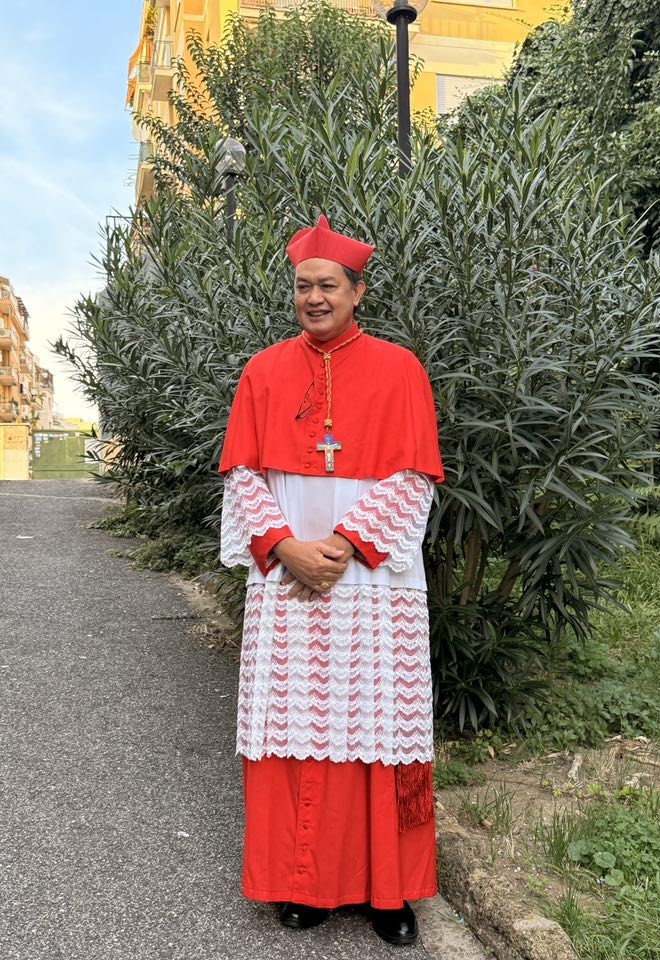
But notice what Jesus says after telling the story: if even an unjust judge gives in to persistence, how much more will a loving Father listen to His children who cry out to Him day and night?
That’s the secret of perseverance in prayer — it’s not born of desperation, but of relationship. We are not widows begging before an indifferent judge. We are sons and daughters speaking to a Father who loves us.
If you believe that your Father listens, you will not give up. You may cry, you may doubt, you may complain — but you won’t stop trusting. That’s why Jesus ends the story with a question that pierces the heart: “When the Son of Man comes, will He find faith on earth?” He’s not asking if He will find busy churches or long novenas. He’s asking if He will still find hearts that trust.
So, what sustains perseverance? Three things:
- Community — the people who lift your arms when you grow weary;
- The Word — which anchors your soul when faith wavers; and
- Trust — the quiet confidence that the Father listens and cares.
Let me end with the words of our Holy Father, Pope Leo XIV, in his recently published apostolic exhortation Dilexi te:
“Love, when it perseveres through fatigue, becomes prayer.
Love, when it refuses to give up, becomes light.” (§24)
So, when your strength begins to fade and your arms begin to droop, remember Moses — and remember that God Himself, more than Aaron or Hur, stands beside you to keep your hands lifted, until the battle is won.
(Homily for my canonical Installation at the Titular Church of the Transfiguration in Rome — 29th Sunday in Ordinary Time, 19 Oct 2025, (Luke 18:1–8))


